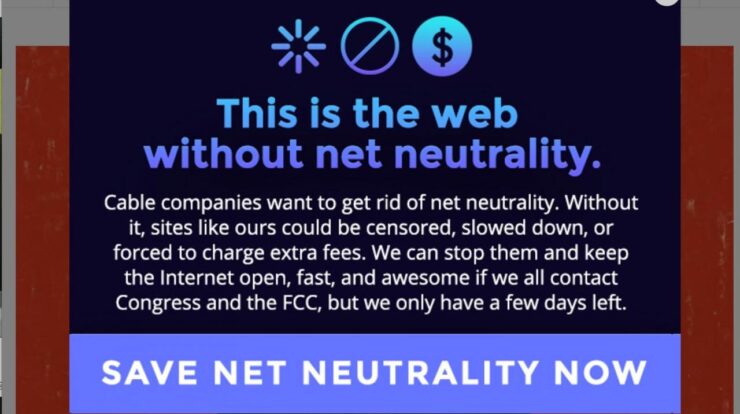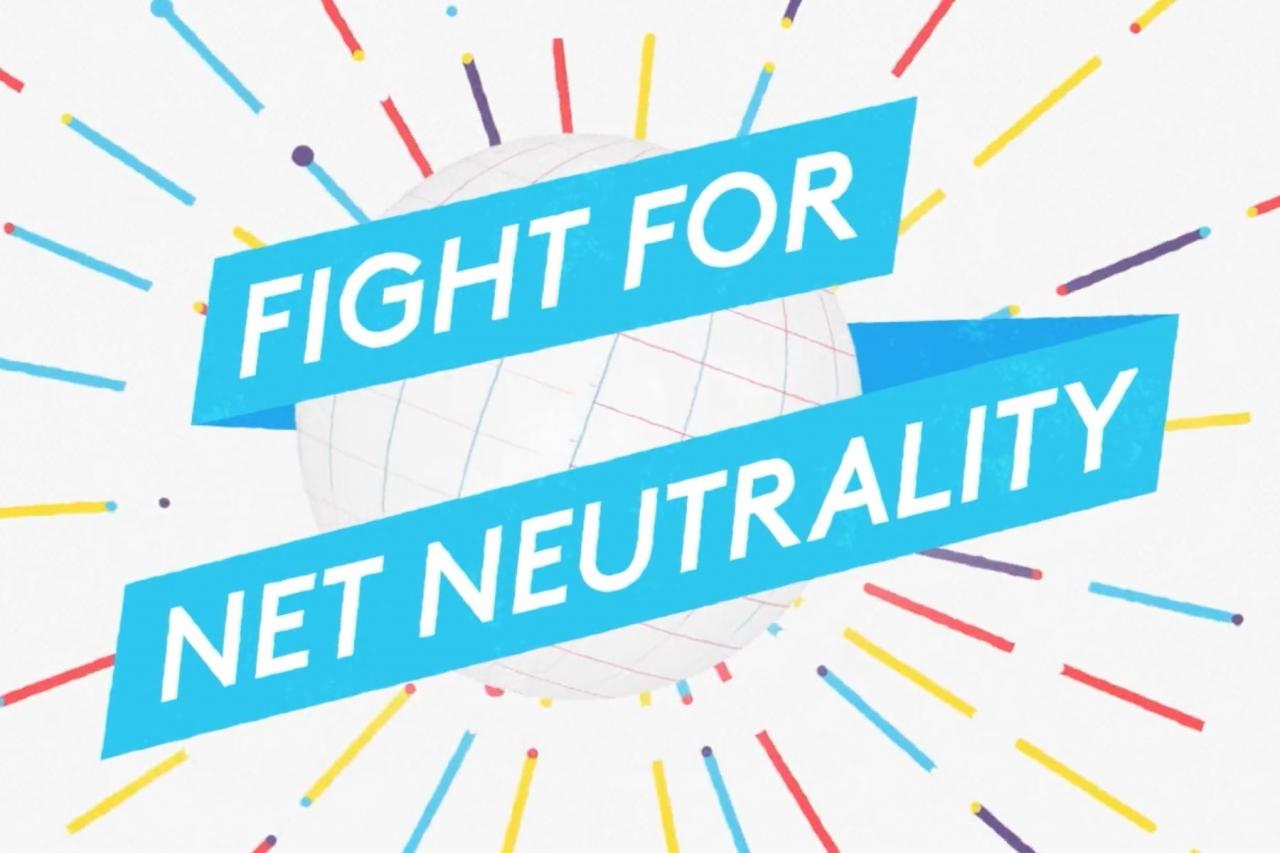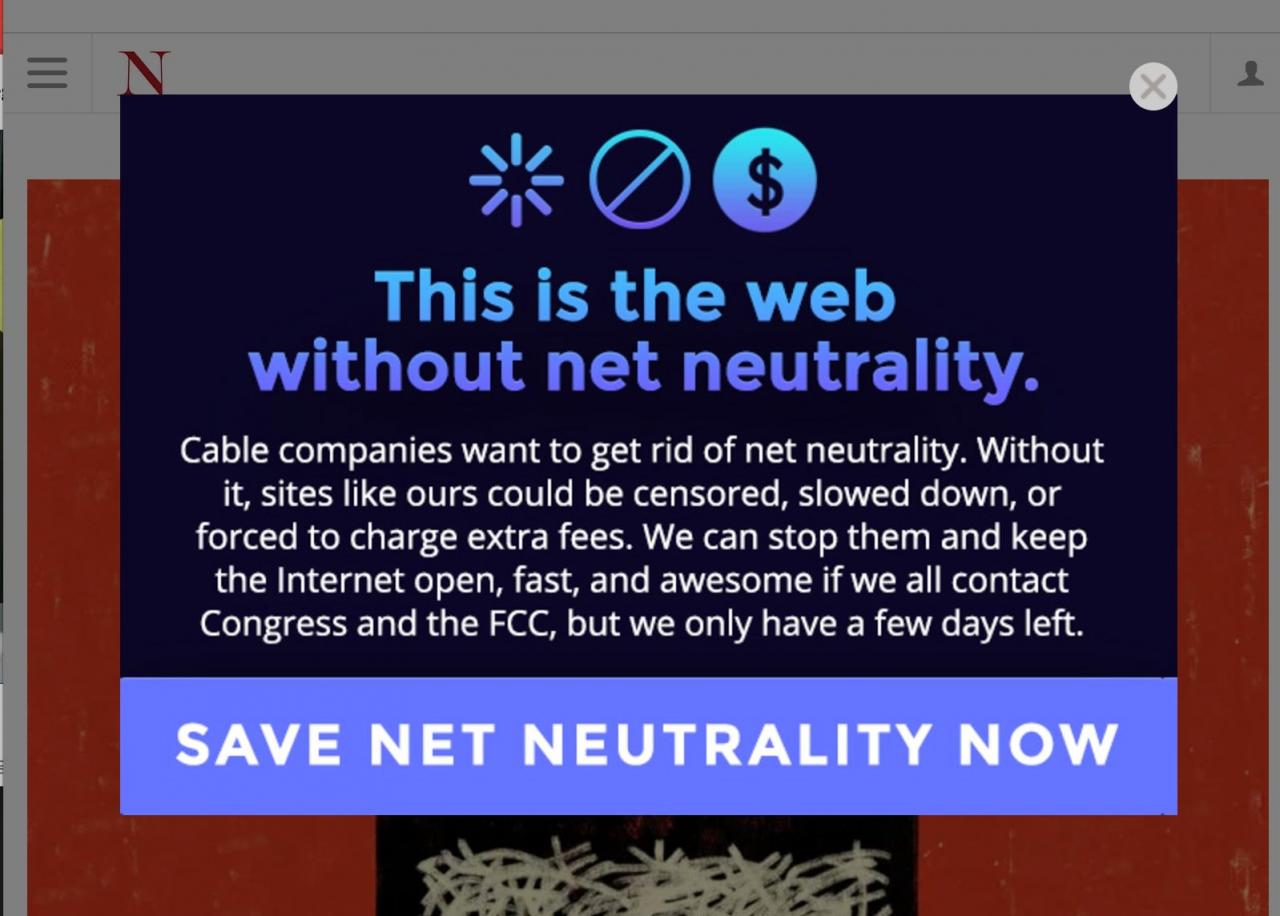
Net neutrality definition – Net neutrality, a cornerstone of the internet, is the principle that all internet traffic should be treated equally, regardless of its source, destination, or content. This fundamental principle ensures a level playing field for online innovation and competition, empowering users with the freedom to access and share information without discrimination.
The history of net neutrality is marked by key milestones, including the Federal Communications Commission’s (FCC) Open Internet Order in 2015, which established net neutrality as a guiding principle in the United States. However, this landmark regulation has faced legal challenges and subsequent repeal, sparking ongoing debates about the future of net neutrality.
Definition of Net Neutrality: Net Neutrality Definition

Net neutrality refers to the principle that all internet traffic should be treated equally by internet service providers (ISPs). This means that ISPs cannot block, throttle, or prioritize certain types of traffic over others, regardless of the source, destination, or content of the data.
The principles of net neutrality include:
- All internet traffic should be treated equally.
- ISPs should not interfere with the content of internet traffic.
- ISPs should not discriminate against certain types of traffic.
History of Net Neutrality
The concept of net neutrality has been around for decades, but it gained widespread attention in the early 2000s as broadband internet became more common.
Some key events in the history of net neutrality include:
- 2005:The Federal Communications Commission (FCC) adopts its first net neutrality rules, known as the “Open Internet Order.”
- 2010:The FCC strengthens its net neutrality rules, prohibiting ISPs from blocking or throttling internet traffic.
- 2015:The FCC adopts new net neutrality rules, known as the “Open Internet Order 2.0.”
- 2017:The FCC repeals the Open Internet Order 2.0, eliminating net neutrality rules in the United States.
- 2021:The Biden administration issues an executive order calling for the restoration of net neutrality rules.
Benefits of Net Neutrality
Net neutrality has several benefits for consumers, businesses, and society as a whole:
- Protects consumer choice:Net neutrality ensures that consumers have access to all the content and services they want online, without having to worry about their ISP blocking or throttling certain types of traffic.
- Promotes innovation:Net neutrality creates a level playing field for all internet companies, regardless of their size or resources. This allows small businesses and startups to compete with larger companies, and it encourages innovation in new products and services.
- Benefits society as a whole:Net neutrality helps to ensure that the internet remains a free and open platform for communication, commerce, and education.
Challenges to Net Neutrality
Net neutrality faces several challenges, including:
- Content blocking:ISPs may block certain types of content, such as websites that offer streaming video or music.
- Throttling:ISPs may throttle certain types of traffic, such as online gaming or video conferencing.
- Paid prioritization:ISPs may charge content providers for faster delivery of their traffic, creating a two-tiered internet.
These practices can harm consumers, businesses, and society as a whole by limiting access to information, innovation, and competition.
Closing Notes

Net neutrality remains a critical issue for the future of the internet. As technology continues to evolve, it is essential to ensure that the principles of net neutrality are upheld, fostering a vibrant and equitable digital landscape for all.
FAQ Corner
What is the significance of net neutrality?
Net neutrality ensures that all internet traffic is treated equally, preventing internet service providers (ISPs) from blocking, throttling, or prioritizing certain content or applications.
How does net neutrality benefit consumers?
Net neutrality empowers consumers with the freedom to access and share information without discrimination, fostering a competitive and innovative online environment.
What are the potential threats to net neutrality?
Threats to net neutrality include content blocking, throttling, paid prioritization, and other practices that undermine the principle of equal treatment of internet traffic.





